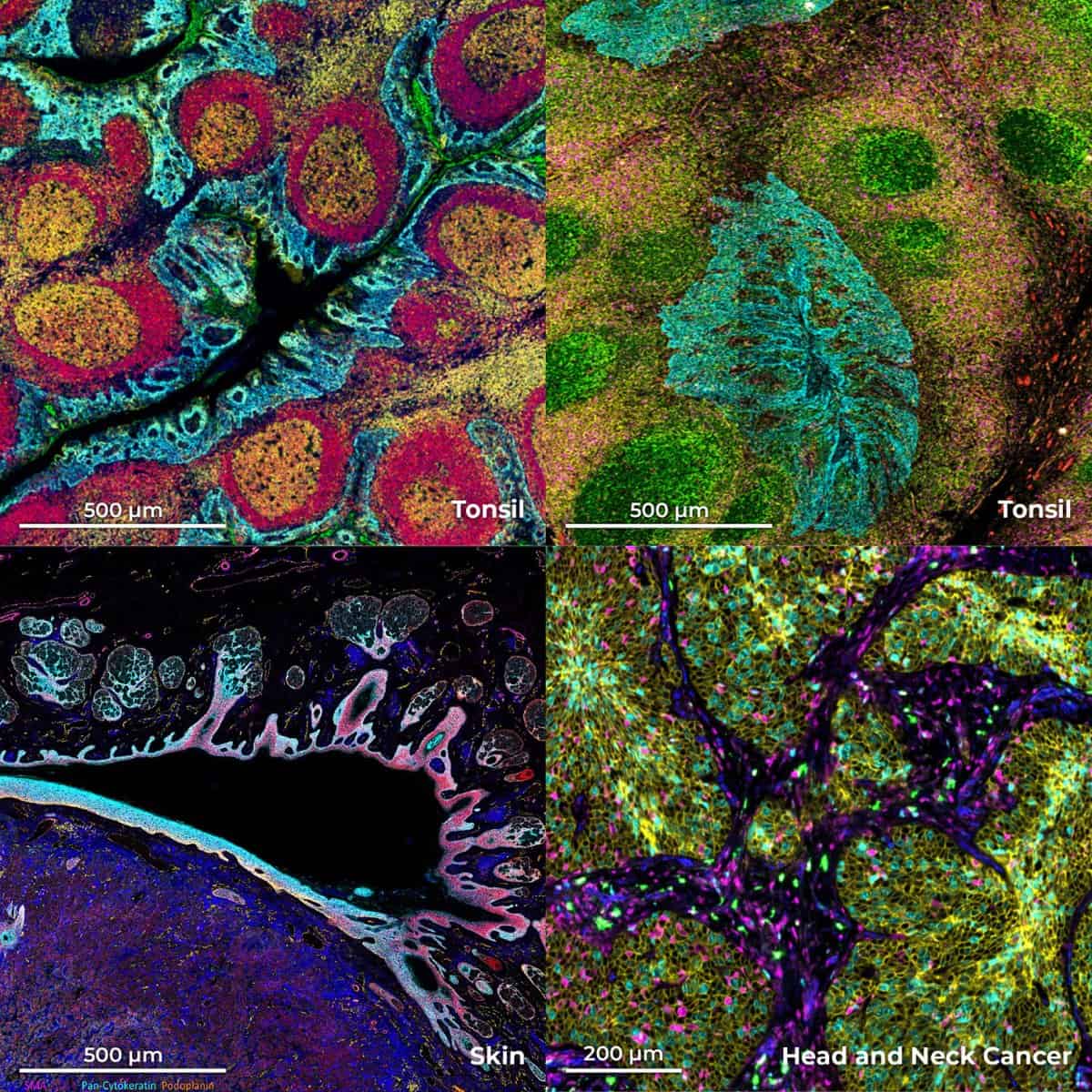
The Queensland Spatial Biology Centre (QSBC) is proud to announce the publication of research papers in three highly regarded journals.
These studies, all published in July 2024, highlight our innovative research in cancer and immunotherapy.
The first paper, featured in Cell Press’ journal STAR Protocols, introduces a protocol using PhenoCycler®-Fusion technology for high-plex, whole-slide imaging of Formalin-Fixed, Paraffin-Embedded (FFPE) tissue. This method allows detailed visualisation and analysis of tissue architecture at the cellular level, advancing our understanding of disease pathology. Read the full paper.
The second study, in Immunology & Cell Biology, explores the tumour microenvironment of head and neck cancer to identify new predictive biomarkers for immunotherapy response. By mapping the interactions between cancer cells and their environment, the researchers discovered specific biomarkers associated with positive outcomes, with insights contributing to the future of targeted treatments. Read the full paper.

The third paper, in the Journal of Translational Medicine, focuses on the role of tertiary lymphoid structures (TLS) in head and neck cancer and their impact on immunotherapy response. The study highlights how the presence and distribution of TLS within tumours may be associated with patient outcomes to immunotherapy. Read the full paper.
QSBC, a pioneering research hub, is focused on transforming healthcare through advanced spatial biology techniques. Our team, led by Professor John Fraser and Dr Arutha Kulasinghe, is dedicated to understanding individual cell interactions to develop personalised treatments for diseases such as cancer, heart disease and lung disease. Read about the QSBC team.
QSBC collaborates with leading institutions like The University of Queensland, the Critical Care Research Group and the Translational Research Institute to push the boundaries of spatial biology and ultimately, help improve patient outcomes.
These publications highlight the importance of spatial biology in understanding complex diseases. Discover more about our work at the QSBC.